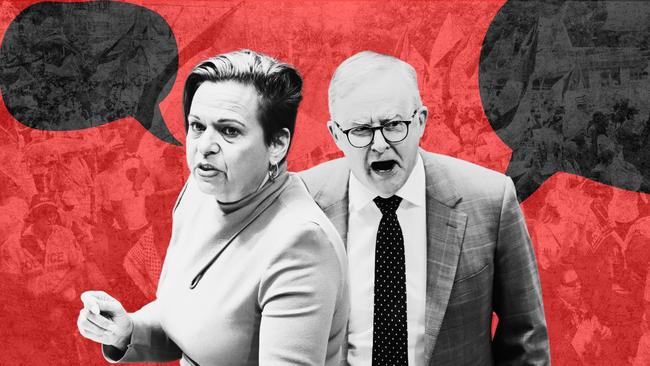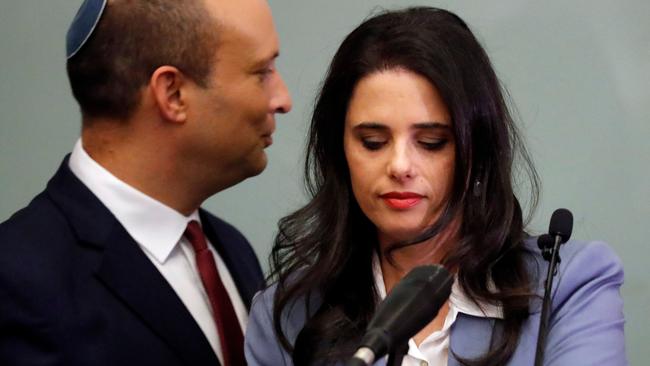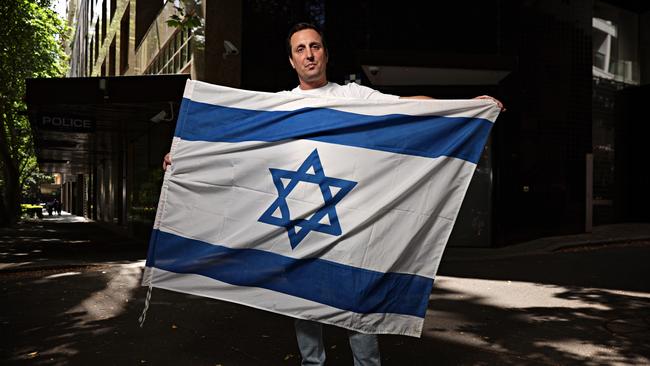
This is a distressing outcome, at least according to Rowland. Unlike her enlightened self, most Australians lack the wherewithal to distinguish fact and fiction. This called for a benevolent but omnipresent moderator to steer our thinking. Enter Rowland, who planned to impose huge fines on digital providers that did not meet the government’s definition of truthfulness.
It was not a partisan measure, Rowland stressed. Responsibility for enforcement would lie with the Australian Communications and Media Authority, which is staffed by nonpartisan Canberra-based public servants (Fun fact: the last time the ACT had a federal Liberal MP was last century).
If you believed Rowland, it was misinformation to suggest the government’s motives were anything but altruistic. It was “not a Big Brother bill”, she wrote in the Herald-Sun last month. “In reality it is all about safeguarding Australians,” she insisted.
In reality it was all about safeguarding the Albanese government from scrutiny, but that debate is academic now, given Labor does not have the numbers to get this bill through the Senate.
The bill was draconian, censorious, and blatantly opportunistic. But imagine the fun you could have had with it. So-called Welcome to Country ceremonies predate Captain James Cook’s arrival here by 250,000 years? Disinformation. The “worthy” winner of the Miss Universe competition is a contestant with Jatz crackers? Disinformation. Assistant Treasurer Stephen Jones has a personality? Disinformation.
The bill may be dead but not the ideology behind it. As experience shows, this government will simply up the mendacity factor to get what it wants. The revised bill was an example of that.
For example, in the original bill, behaviour that was defined as ‘serious harm’ included “hatred against a group in Australian society” based on ethnicity, nationality, race, gender, and other characteristics. But in the revised bill, ‘hatred’ had been replaced by ‘vilification’. As the Institute of Public Affairs noted in its submission, the definition of vilification is wider than that of hatred. ‘Vilify’, the think-tank observed, is “a notoriously vague and subjective standard”.
Far from addressing concerns of free speech proponents following the original public consultation phase, the government was if anything expanding the bill’s repressive remit.
As former Israeli government minister Ayelet Shaked knows, the Albanese government abuses such powers by exploiting ambiguously worded legislation. Due to attend a security conference in Canberra this week, she learned just days ago her visa had been refused on the grounds she could “vilify” Australians or “incite discord”. On Tuesday Sky News host Sharri Markson revealed Home Affairs Tony Burke had made that decision.

Technically, Burke is correct – Shaked could vilify Australians. For instance, she could say Western Sydney is a haven for a throng of Muslims who celebrated in the streets when Hamas terrorists slaughtered hundreds of Israeli men, women, and children in the October 7 attacks.
She could also vilify Burke personally by saying he was missing in action following the attacks, and that when pressured to condemn them he did so belatedly and by drawing false equivalence between the actions of Hamas and Israeli actions in Gaza. And she would be vilifying him if she said his decision to refuse her a visa has nothing to do with the public interest but rather was a desperate and craven attempt to appease Middle Eastern voters in formerly safe Labor seats that he and his cabinet colleagues currently hold.
Then there is Minister for Foreign Affairs Penny Wong. Shaked would be vilifying her if she said this government’s Middle East policies are based not on reason and prudence but resemble more a vox pop of Sydney residents in Punchbowl and Lakemba.
She would be vilifying Prime Minister Anthony Albanese if she said a jellyfish could act with more decisiveness than he has in confronting the burgeoning anti-Semitism that exists not just in this country but also within Labor. It would also amount to vilification if she said Albanese’s dereliction is such that Jewish-Australians no longer feel safe in their own country.
But as previously noted, ‘vilify’ is an open-ended word. The most devastating of vilifications are those that angrily speak truth to power. No doubt that was foremost in Burke’s considerations when he refused Shaked a visa.
And what of Burke’s insistence that Shaked’s visit would “incite discord”? Again he is technically correct, but not in the spirit of the legislation. One cannot imagine, for example, Shaked’s attendance resulting in Jewish-Australians rioting in the Melbourne suburbs of Caulfield or East St Kilda. Nor is it likely you will see members of the Jewish faith gathering en masse outside the Sydney Opera House to celebrate a pogrom of Muslims.
Burke’s justification is a reverse onus of public order obligations and a perversion at that. It is the same reasoning that justified the arrest last year of a Jewish-Australian for the crime of waving an Israeli flag on a Sydney street. Rather than arrest the Middle Eastern thugs who intimidate and harass innocent citizens, government placates them.

It is about ensuring “social cohesion” you see. Just like what we are told about “tolerance” and “respecting differences”. The biggest manufacturers of disinformation are those who employ such terminology in justifying adverse measures against those who stand up to the aggressor.
They are the worst kinds of hypocrites. “Freedom always comes with responsibility,” wrote Albanese in the Courier Mail in September. “A right to free speech isn’t a right to spread deliberate lies and falsehoods”. That is debatable, but in any event a notorious purveyor of porkies is ill-suited to sermonising about honesty.
Mind you, I am all for Albanese combating disinformation. He could make an immeasurable contribution in this respect. All that would require is for him is resign his office immediately and never again contribute to public debate.




It is the season to be jolly, but try telling Communications Minister Michelle Rowland that. As we learned on Sunday, her controversial draft disinformation and misinformation bill is cactus.